Current News
/ArcaMax
<strong />Gas line rupture in Castaic prompts 5 Freeway closure, shelter-in-place order
LOS ANGELES — A natural gas line rupture in Castaic prompted the closure of the 5 Freeway for nearly four hours Saturday while area residents were ordered to shelter in place.
As fire and hazmat crews worked to seal the leak from a 34-inch Southern California Gas Company transmission pipeline, the smell of rotten eggs crept across large ...Read more
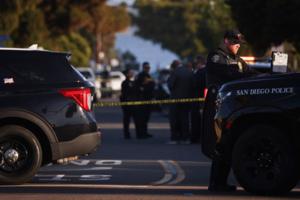
Beyond breathalyzers, San Diego police can now field test drivers for drugs
SAN DIEGO — The driver told San Diego police he had passed out in a mall parking lot and woke up to find his car crashed into a pole.
The officer who responded to the scene earlier this month noted that the driver displayed signs of impairment — dilated eyes, swaying back and forth, an elevated pulse, Sgt. Greg Minter said.
While the ...Read more
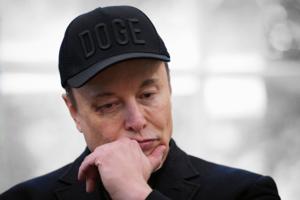
Elon Musk warns 'people will die' after Mamdani taps Lillian Bonsignore as FDNY commissioner
NEW YORK — Elon Musk threw cold water on Mayor-elect Zohran Mamdani’s pick of Lillian Bonsignore as the city’s FDNY commissioner, warning it would have dire consequences because she lacks firefighting experience.
“People will die because of this. Proven experience matters when lives are at stake,” the Space X and Tesla owner said ...Read more
Gas line explosion in Castaic prompts 5 Freeway closure, shelter-in-place order
LOS ANGELES — Los Angeles County firefighters were responding to a gas line explosion in Castaic on Saturday, which prompted California Highway Patrol to close a portion of the 5 Freeway and the fire department to order residents to shelter in place.
There were no injuries, said Fire Capt. Brian Kight.
Los Angeles County Fire Department ...Read more
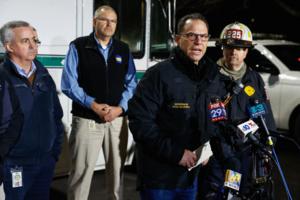
Days after Bristol nursing home explosion, residents are left in unfamiliar new locations without clothes, possessions, and medications
PHILADELPHIA — First, Danielle Delange saw the news alert: Bristol Health & Rehab, the nursing home where her mother lived, was on fire.
Within minutes, Delange got a phone call from an unfamiliar number. On the line, she heard her 64-year-old mother’s trembling voice.
“My mom said there was a gas explosion,” Delange said. “And I ...Read more
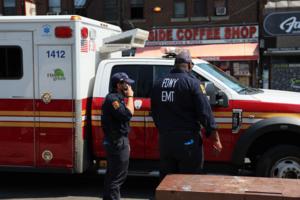
EMTs deliver baby on side of Bronx highway during Friday night's snowstorm
NEW YORK — Ice, ice, baby!
Two intrepid EMTs helped deliver a baby on the side of a Bronx highway in the middle of Friday night’s big snowstorm, according to an FDNY post on X.
EMTs Henry Garcia and Rachel Rosado from FDNY EMT Station 3, serving southeast Bronx and Castle Hill, responded to a call for a woman in labor. They quickly ...Read more
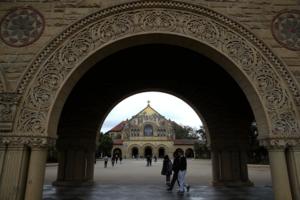
Fired Stanford researcher gets probation for altering cancer data with insults like 'doctor too stupid'
SAN JOSE, Calif. — A fired Stanford researcher was given four years of probation for hacking into a cancer patient database and altering it in 2013.
Naheed Mangi, 70, was convicted earlier this year of intentional damage to a protected computer. Prosecutors say that after being fired, she changed the database by replacing patient information ...Read more
Death after Montgomery County police encounter under investigation by Maryland attorney general
BALTIMORE — The Maryland Office of the Attorney General’s Independent Investigations Division announced Friday that it is investigating an individual’s death after police released him from custody earlier this month.
Montgomery County police took the yet-unnamed decedent into custody while responding to a 911 call for a person ...Read more
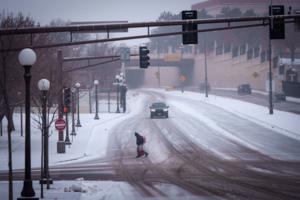
Winter storm to bring snow, possible blizzard conditions to Minnesota on Sunday
MINNEAPOLIS — A potent winter storm is expected to bring several inches of snow to much of the state, along with blizzard conditions in central and southern Minnesota beginning Sunday into Monday.
The National Weather Service has issued a winter storm warning for much of eastern Minnesota, while a blizzard warning is in effect for portions of...Read more
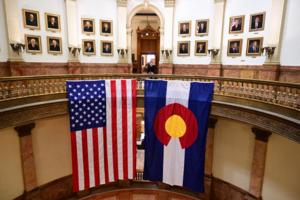
Are Colorado's new natural gas pipeline rules tough enough?
DENVER — A state audit in 2023 painted a grim picture of Colorado’s oversight of natural gas pipelines, but critics say despite the findings and legislation mandating improvements, new rules backed by regulators are inadequate.
The Colorado Public Utilities Commission on Tuesday supported most of the recommendations by an administrative law...Read more
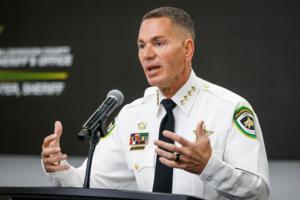
5 Florida law and justice stories that defined 2025
TAMPA, Fla. — An ex-Tampa prosecutor became the nation’s top law enforcement official.
The governor carried out a surge in executions.
A cheating scandal rocked one of the state’s largest law enforcement agencies.
From cops to courts to the Department of Corrections, some of the year’s biggest stories grew from the Sunshine State.
...Read more
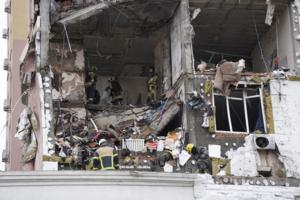
Zelenskyy prepares for Trump meeting as Russia bombards Kyiv
Russian forces hit Ukraine’s capital and key energy facilities with a massive airstrike on the eve of talks between Volodymyr Zelenskyy and Donald Trump aimed at nailing down a plan to end Moscow’s war.
Ukraine’s president stopped in Halifax, Nova Scotia, en route to the U.S., to meet with Canadian Prime Minister Mark Carney. Together, ...Read more

'Cautiously hopeful:' Miami-Dade deputy struck on Turnpike remains hospitalized
MIAMI — A Miami-Dade Sheriff’s deputy is in critical condition after being struck by a vehicle on Saturday morning while assisting the Florida Highway Patrol with a traffic crash.
The deputy was stopped on the Turnpike near Northwest 74th Street when the crash happened around 7 a.m., according to the Sheriff’s Office.
Miami-Dade Fire ...Read more
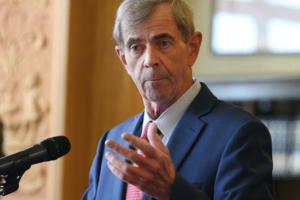
Organizations rush to Massachusetts' defense in DOJ voter information lawsuit
BOSTON — A political advocacy group has filed to be an intervenor on behalf of Massachusetts in a lawsuit brought this month by the Department of Justice over the refusal of 22 states to provide the federal government with private voter data and information.
Common Cause has filed a motion in U.S. District Court, in partnership with a ...Read more

NJ man charged with attempted murder after shooting at cops on Christmas
A New Jersey man has been charged with attempted murder after shooting at law enforcement officers as they responded to a domestic violence incident on Christmas night, police said.
Officers with the Hamilton Township Police Department responded to a residence on the 500 block of North Street in Mays Landing on Thursday, after a woman reported ...Read more
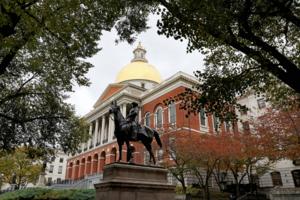
Massachusetts bill would give workers a heads up before ICE audits
BOSTON — A bill is making its way through the Massachusetts State House that would require employers to notify workers ahead of an I-9 audit, allowing any hired illegal immigrants the chance to avoid federal probes into employment eligibility and their individual immigration status.
The bill, “An Act to Notify Employees of an I-9 Audit” (...Read more
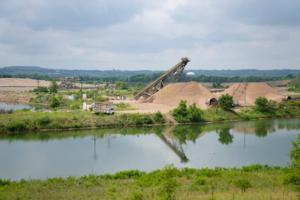
Mississippi River mining plan in Minnesota dredges up concerns about damage to natural areas
MINNEAPOLIS — The Mississippi River snakes below the bluffs at Spring Lake Park Reserve near Hastings, where people stroll or ski along the trails to take in the view of the majestic river.
But some local officials and river lovers are raising alarms about the prospect of that scenic vista changing. A proposal for a new phase of gravel mining...Read more
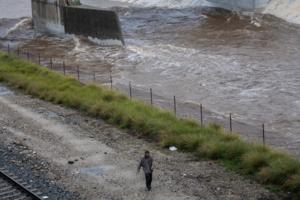
For the first time in two decades, it might rain on the Rose Parade
LOS ANGELES — Southern Californians mopping up from record-breaking rains over the Christmas holiday may be in for more wet weather to usher in the new year — including a high likelihood of rain on the Rose Parade.
The last time the parade got drenched was in 2006, when sheets of rain soaked the floats and marching bands making their way ...Read more
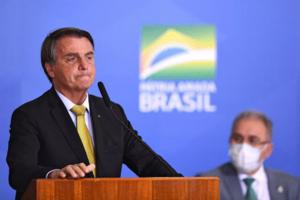
Bolsonaro undergoes medical procedure to treat severe hiccups
Brazil’s former president, Jair Bolsonaro, underwent a medical procedure on Saturday afternoon at a hospital in Brasília to treat a bout of persistent hiccups.
The intervention, described as successful by his medical team in a Saturday news conference, involved blocking the phrenic nerve, which runs from the neck to the diaphragm. Saturday�...Read more

2025 marked a turning point for long-stalled Baltimore projects
BALTIMORE — The year 2025 marked a time when Baltimore put a check mark next to two capital projects that have been stuck in the talking stages for too long to remember.
Little noticed, except by annoyed drivers on the North Avenue Bridge, was the eight-month rebuild of the Howard Street Tunnel. The tunnel was lowered so that shipping ...Read more
Popular Stories
- End of Trump case caps dramatic year in Georgia courts
- Haiti's beleaguered police, army get elite French training as gang crisis deepens
- Chicago Transit Authority crime down slightly despite series of high-profile incidents in 2025
- How Orlando figures in the Epstein files
- 2025 marked a turning point for long-stalled Baltimore projects





